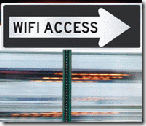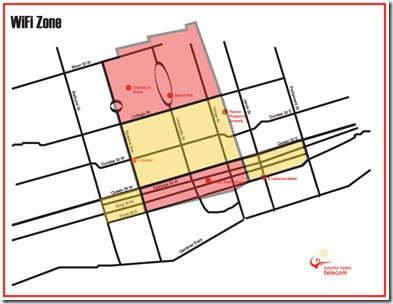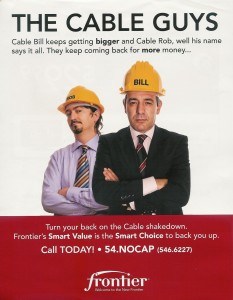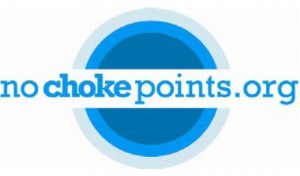 Canada is a victim of Internet Overcharging, with virtually every major provider limiting access to broadband, throttling speeds, and charging overlimit penalties for exceeding arbitrary limits. Now Cogeco, which itself engages in these schemes for its residential broadband service, has made a breakthrough of sorts.
Canada is a victim of Internet Overcharging, with virtually every major provider limiting access to broadband, throttling speeds, and charging overlimit penalties for exceeding arbitrary limits. Now Cogeco, which itself engages in these schemes for its residential broadband service, has made a breakthrough of sorts.
Cogeco One Zone, available only to users of Apple’s iPhone and iPod Touch, provides 802.11g WiFi across the One Zone WiFi network for only $5CAD a month. One Zone, acquired last August from Toronto Hydro Telecom, operates within a six kilometre region in the downtown core of Toronto. Users discovering the service report it can achieve speeds of up to 7Mbps, and there are no data consumption limits or contracts.
Any iPhone/iPod Touch user who accesses the network within range will automatically be taken to a special sign-up page to begin service. Cogeco One Zone’s offer represents a major discount off the pricing being charged to other One Zone WiFi users:
 1 Hour
1 Hour
60 minutes of continuous access
$4.99 + GST and PST
1 Day
24 hours of continuous access
$9.99 + GST and PST
1 Month
Continuous access to same date in following month
$29.00 + GST and PST
(All prices are in Canadian Dollars)
So why has Cogeco decided to practically give away the service?
“Our expectation is that users won’t be using it for downloading video and huge files … It’s just the nature of the device. It’s not likely they’ll be downloading gigabytes of information standing on the street,” Cogeco Data Services president Ian Collins told itWorldCanada.
One potential use Collins may not realize has been among Toronto residents who live and work within range of the network. For some of them, Cogeco One Zone is being used from work and home, and although it is unlikely to replace residential broadband accounts that connect with home computers, some users will give the network a real workout. Should customers figure out how to tether their iPhone WiFi connection to their home computer, effectively accessing the network from a home PC or laptop, that could become an entirely new challenge.
For Canadian iPhone owners, who already face higher prices for iPhone data plans (no “unlimited” plan exists in Canada as it does in the United States), the biggest savings may come from customers downgrading data plans for “phone-based” data, because they rely on the WiFi network instead. Most iPhone owners currently pay $30 per month for 1GB or $25 for 500MB. With unlimited access through WiFi, there are no worries about exceeding data allowances.
Knowledgeable iPod Touch owners could also turn their players into Voice Over IP telephone lines using Skype or Truphone, and effectively pay just a few dollars per month for unlimited long distance calling.


 Subscribe
Subscribe
 The NoChokePoints Coalition has a point. They are a coalition of public interest groups and providers like British Telecom and Sprint-Nextel that are upset with monopolistic pricing for high speed broadband lines. Verizon and AT&T “control the broadband lines of almost every business in the United States” the coalition states, and “generates a profit margin of more than 100% for the controlling phone companies.”
The NoChokePoints Coalition has a point. They are a coalition of public interest groups and providers like British Telecom and Sprint-Nextel that are upset with monopolistic pricing for high speed broadband lines. Verizon and AT&T “control the broadband lines of almost every business in the United States” the coalition states, and “generates a profit margin of more than 100% for the controlling phone companies.”